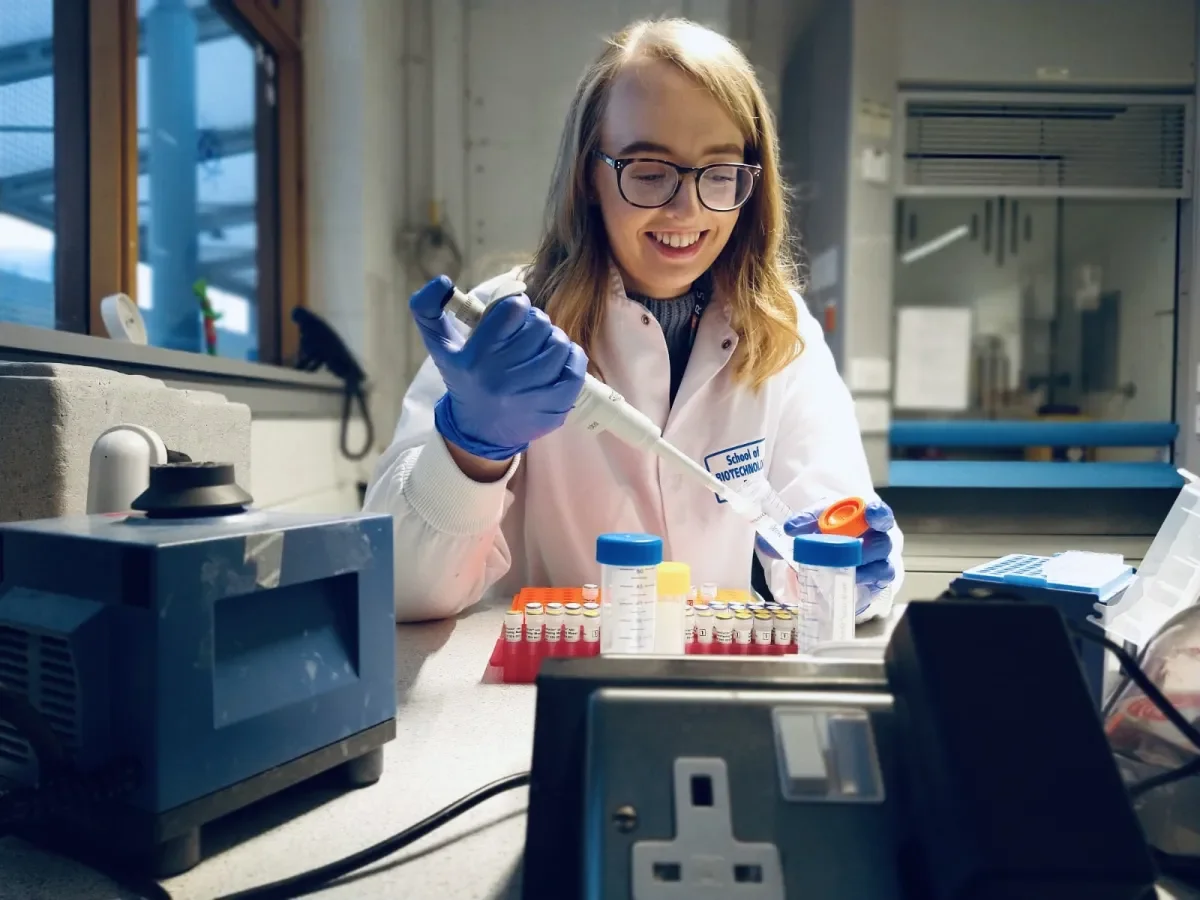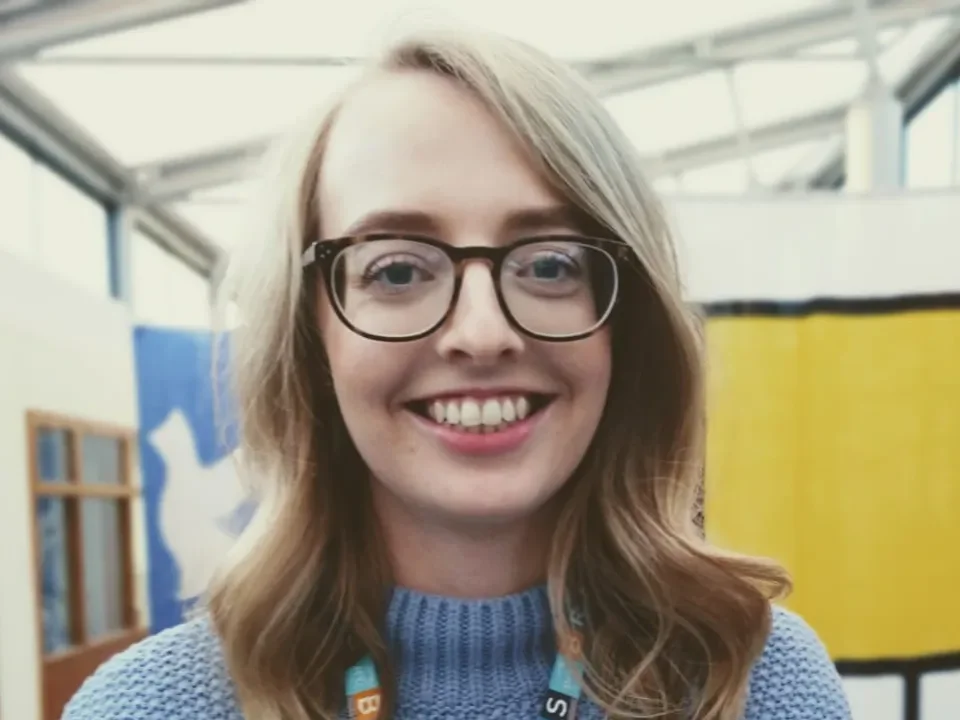

Orla Benson Postgraduate Research Scholarship 2020/2021
The 2020/2021 recipient of the Orla Benson Postgraduate Scholarship is Ms. Niamh Bookey.
In 1996, the family and friends of Orla Benson founded the Orla Benson Memorial Scholarship in memory of Orla; a graduate of the class of 1995 from the Biotechnology degree programme who sadly passed away in the summer months before her graduation. The memorial scholarship offered by the Benson family is awarded on an annual basis to a student demonstrating outstanding potential in the field of Biotechnology. Since its inception, this generous award has been instrumental in forging collaborations, disseminating research, and ultimately making breakthroughs across the various fields of the recipients.
Niamh is part of the Molecular Genetics Laboratory, headed by Prof. Anne Parle-McDermott based in the School of Biotechnology at DCU. Funded by the Biotechnology and Biological Sciences Research Council and Science Foundation Ireland (BBSRC-SFI) programme, Niamh’s work aims to examine the overall functional relevance of a gene encoding for dihydrofolate reductase.

Ms. Niamh Bookey, Orla Benson Award Winner 20/21
‘Folate one-carbon metabolism is an essential biochemical pathway which converts folates we ingest as part of a regular diet, into essential biological building blocks used for processes such as the synthesis, repair and or replication of DNA in our cells’, explains Niamh. ‘It is a complex pathway which if impaired at particular points, can lead to the development of clinical disease states such as neural tube defects and cardiovascular disease’.
‘The dihydrofolate reductase (DHFR) gene family is one of the key groups involved in folate one-carbon metabolism, with the resultant enzyme performing two key reduction reactions converting folic acid to tetrahydrofolate; a form which then allows it to be processed as part of the previously mentioned downstream functions pertinent to DNA’.
‘The DHFR enzymes have incredible potential as therapeutic targets, and warrant further investigation. Of particular interest to me is the discovery that the human genome contains a second gene encoding for dihydrofolate reductase 2. This second gene is absent in many animals, so it is thought the presence of this in the human genome may be a product of evolution, though the actual function is currently unknown’.
Niamh intends to use the award to visit the laboratory of a collaborator of the Molecular Genetic Laboratory; Prof. Nicholas Greene, based in the Great Ormond Street Institute of Child Health, University College London, where she will utilise highly specialised, translational models to examine the expression of the DHFR2 protein across a number of species using advanced mass spectrometry approaches. This unique opportunity will answer several questions pertaining to the role of this second DHFR2 gene contained within the human genome, towards defining the functional role of such in everyday life.
Niamh also hopes to use the award to take part in the 13th International Conference on One-Carbon Metabolism, B Vitamins and Homocysteine, held in Poznań, Poland. This would allow Niamh to present her findings stemming form her research visit to UCL to hundreds of international leading experts in the area of metabolic networks.
‘Attendance at this conference will not only allow me to hear about the cutting-edge research in my area of interest, but presenting at it will offer valuable feedback on my own work, which this award helped progress and develop, aiding the completion of my thesis. It will also assist in planning where our group take this research moving forward’.
‘I’m incredibly grateful to the Benson family for providing this award to early-career researchers like myself in the School of Biotechnology. This award is truly one-of-a-kind, and will have a lasting impact on not only my work, but the work carried out in our group in the years to come’.
